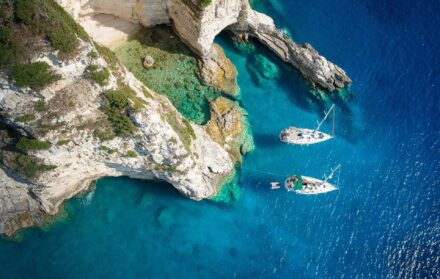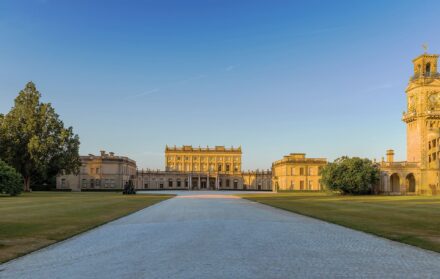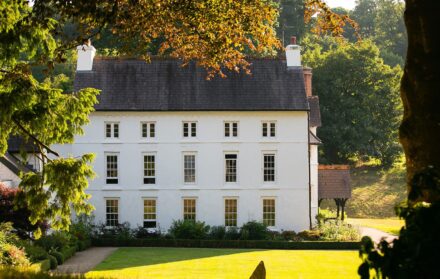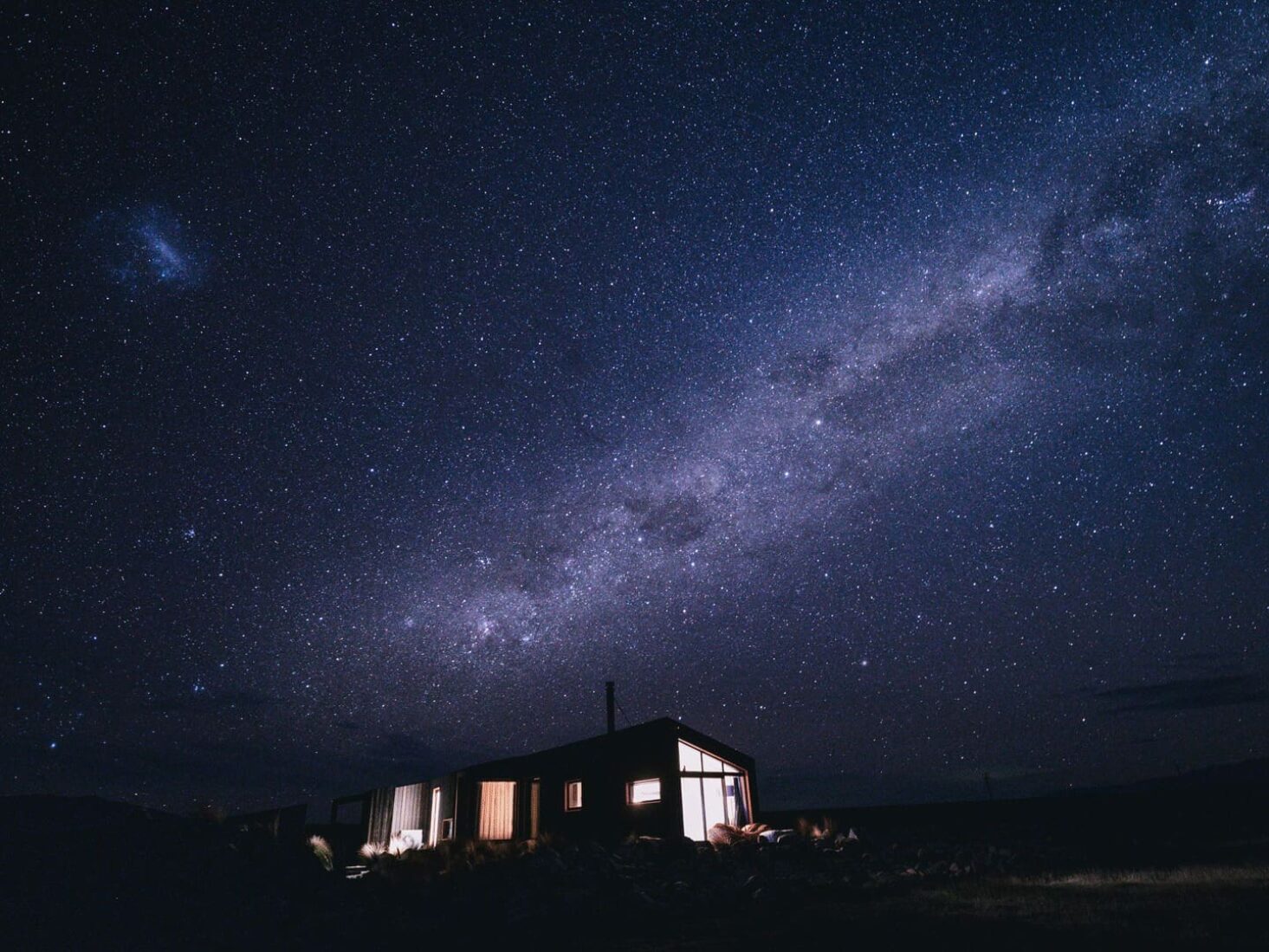
Starry-eyed: The best destinations in the world for astrotourism
Do you dream of seeing the Aurora Borealis? Do you know your Ursa Major from your Orion? If so, turn your eyes to the heavens and consider this sparkling new travel trend
Travel has not been immune to the rise of the internet, social media, and a plethora of TikTok microtrends providing people with niche inspiration for the bucket list locations. Enter the latest: astrotourism. The term refers to visiting destinations where you can observe the stars – where, come nightfall, the sky becomes a lit-up canvas of celestial objects.
Bolstered by the increasing popularity of astrology, astrotourism is informed by a desire to visit lesser-known, off-the-beaten-track destinations – in order for somewhere to be a prime stargazing spot, the sky needs to be dark, which means low population density and pollution levels. With an estimated 80 per cent of the world impacted by light pollution, escaping to a place where you can see the stars is the ultimate exercise in exclusivity.
This type of nature-based tourism has come on in leaps and bounds over the last few years: Nordic tour operator Discover the World reports a 40 per cent year-on-year increase in Northern Lights holiday enquiries, according to the Evening Standard, and luxury travel company Black Tomato has launched a dedicated collection for travellers who want to witness solar or lunar events. Now, travellers are spoiled for choice when it comes to hotels, retreats, resorts, lodges, and ‘bubbles’ primed for viewing celestial bodies. Here are some of the best places in the world to experience astrotourism, and where to stay while you’re there.
Italy
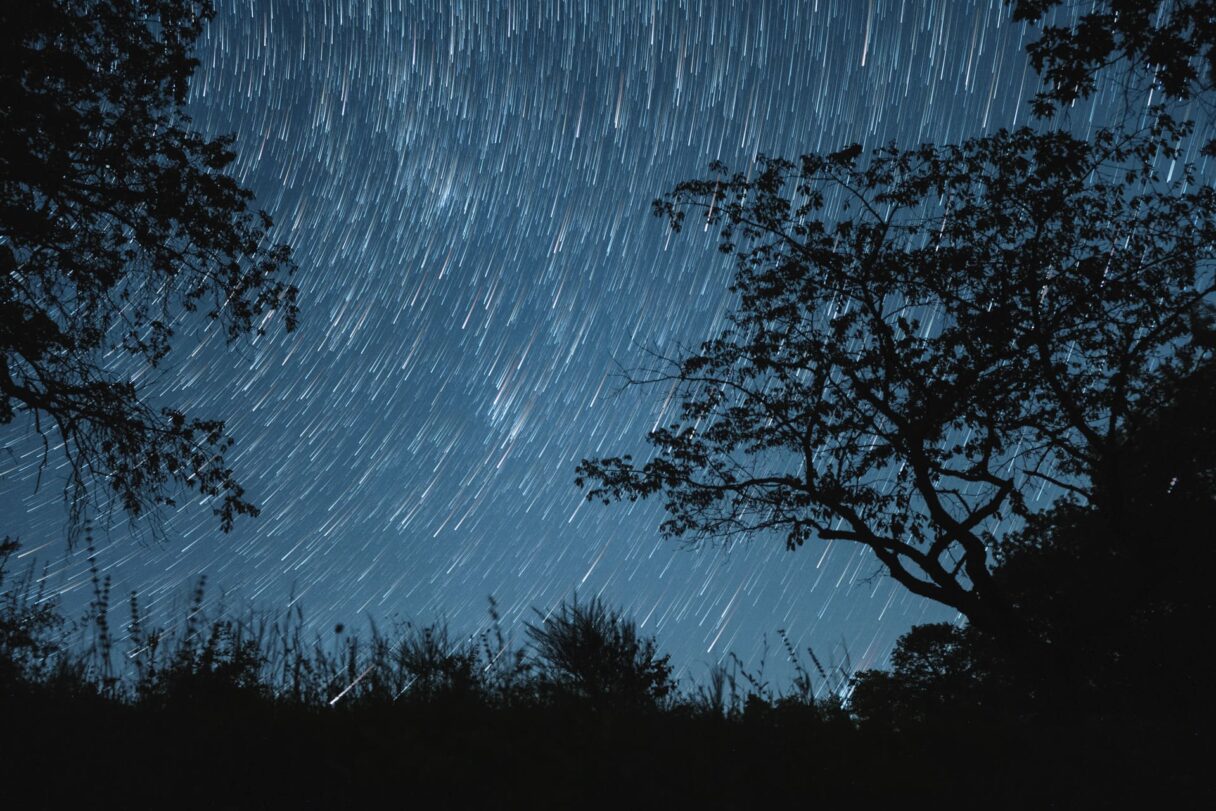
Not, perhaps, as far flung as you may have been expecting, but it turns out that you don’t have to go to the depths of the desert to get a good glimpse of the stars – the Apennine Mountains make a pretty good go of it, too. With its dark skies, the range is perfect for stargazing. Oasyhotel, nestled in the Oasi Dynamo nature reserve in Tuscany, has made the most of this fact, organising post-dinner stargazing sessions for guests on a newly-constructed outdoor platform. These are run by an expert guide who teaches you how to recognise constellations – as well as the crucial art of how to take smartphone photos through a telescope.
From €400 per night.
Mexico
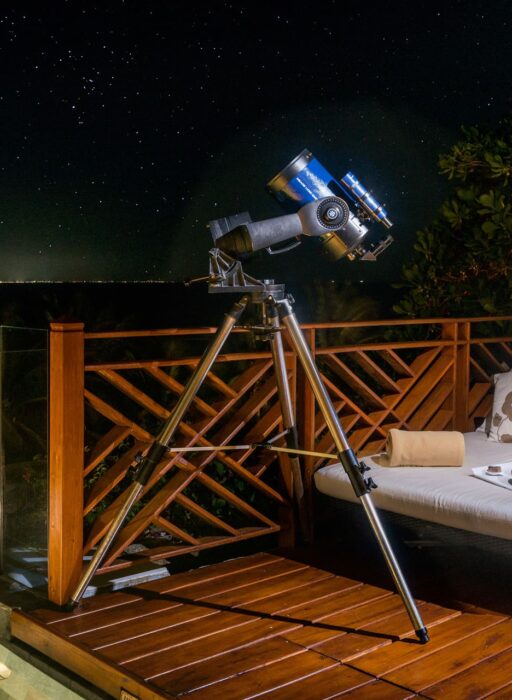
Grand Velas Riviera Maya, Mexico
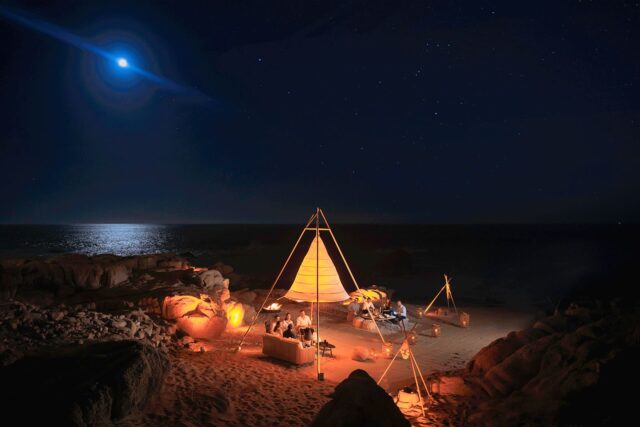
Grand Velas Los Cabos, Mexico
From antiquity to the early modern period, the Mayan civilisation looked to the stars to measure the passage of time. Centuries later, you can do the same amid 206 acres of jungle and mangroves on the Yucatán Peninsula – a hotspot for viewing celestial bodies. The Grand Velas Riviera Maya hotel provides guests with a guide to teach them how to stargaze as the Mesoamericans once did, but this time with state-of-the-art telescopes providing clear views of Orion, Venus and the moon. Alternatively, head to the Baja Peninsula, which is recognised by NASA as one of the top 20 places for night-sky research, and have dinner under the stars at the Los Cabos Grand Velas outpost.
Grand Velas Riviera Maya, from $1,172 per night; Grand Velas Los Cabos, from $1,346 per night.
Scandinavia
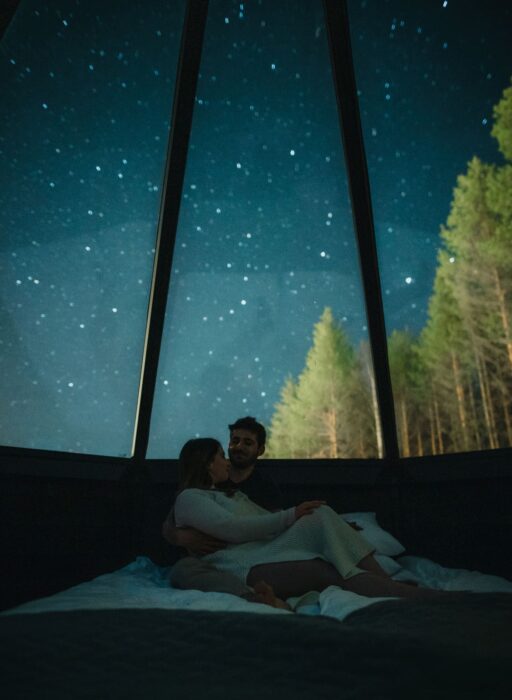
Apukka Resort Rovaniemi, Lapland, Finland
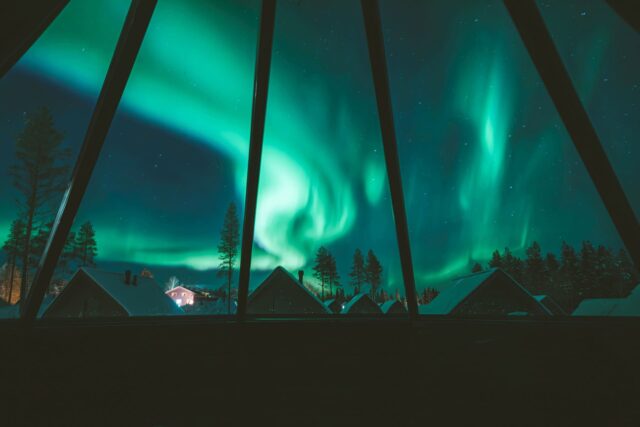
There are few better spots to capture what is perhaps the most coveted celestial phenomenon on Earth – the Northern Lights – than northern Scandinavia. The Aurora Borealis is visible nearly 200 nights of the year in Finnish Lapland. For something a little further away from the madding crowds, head to the most northern tip of the landmass in Norway. In regions such as Tromsø, Kirkenes and Alta, natural night-time spectacles abound, visible from a selection of mountain lodges, lakeside yurts, or even tent igloos. For your best chances of catching the show, book one of Aera's glass-sided cabins (which are a bit like a cosy greenhouse with a bed) which come complete with 'aurora alarms'.
From approx. £367 per night in the winter season.
USA
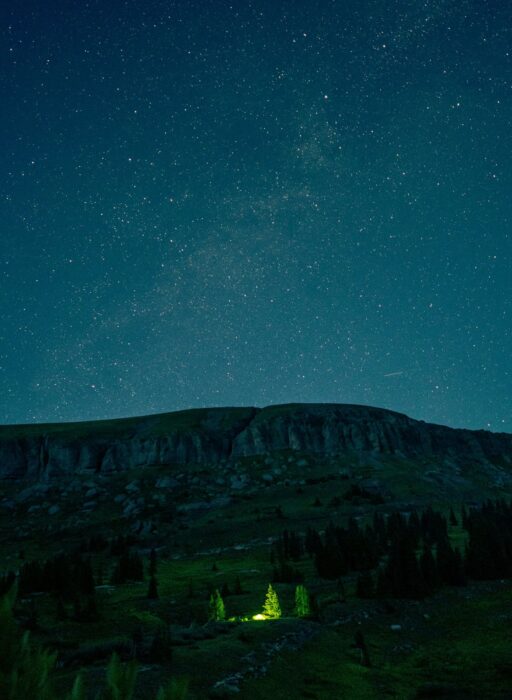
Colorado
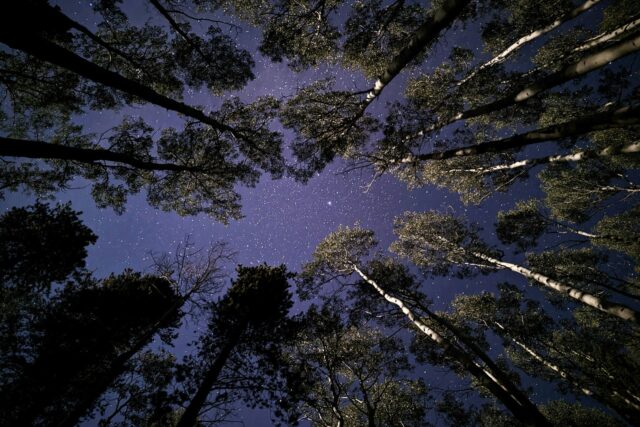
America is home to vast swathes of sparsely-inhabited land – in other words, the perfect territory for stargazing. At Mesa Verde National Park in Colorado visitors can marvel at stars while surrounded by ancient cliff dwellings. Chaco Culture National Historical Park Observatory in New Mexico is another fantastic place to see the Milky Way. Rangers lead ‘star talks’ at Great Basin Observatory, located in one of the darkest places in the country at the border of Nevada and Utah – the state which, incidentally, has more International Dark Sky Places than anywhere else in the world. While major luxury hotel brands are few and far between in this remote locale, an authentic experience informed by the area's history of Native American tribes, cowboys and pioneers can be garnered at the romantically-named Hidden Canyon Retreat.
From £185 per night.
New Zealand
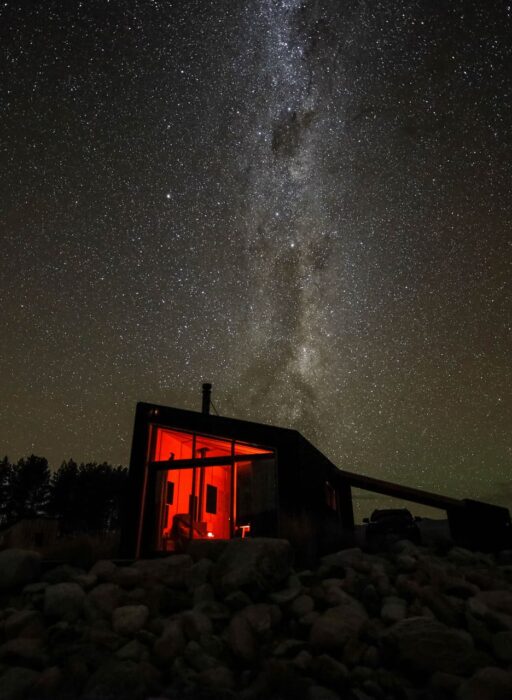
Skylark Cabin, New Zealand
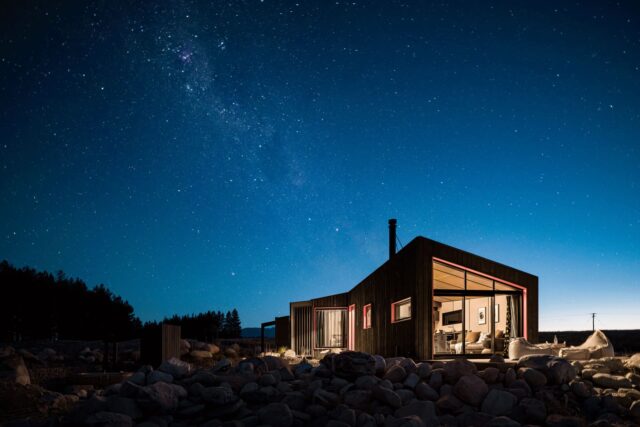
New Zealand’s South Island, in particular, is a stargazer’s paradise, with numerous Dark Sky Parks dedicated to the endeavour. Aoraki Mackenzie is one of the world’s largest; here, you can go stargazing on Mount John and learn about indigenous Māori beliefs about the night sky. If you’re staying in the Mackenzie region, book into Skylark Cabin, nestled among 4,367 square kilometres of protected landscape meaning that, once night falls, the sky comes alive. In the remote Rakiura (Stewart Island) you can spot the aurora australis – the Southern Lights.
From approx. £380 per night.
UK
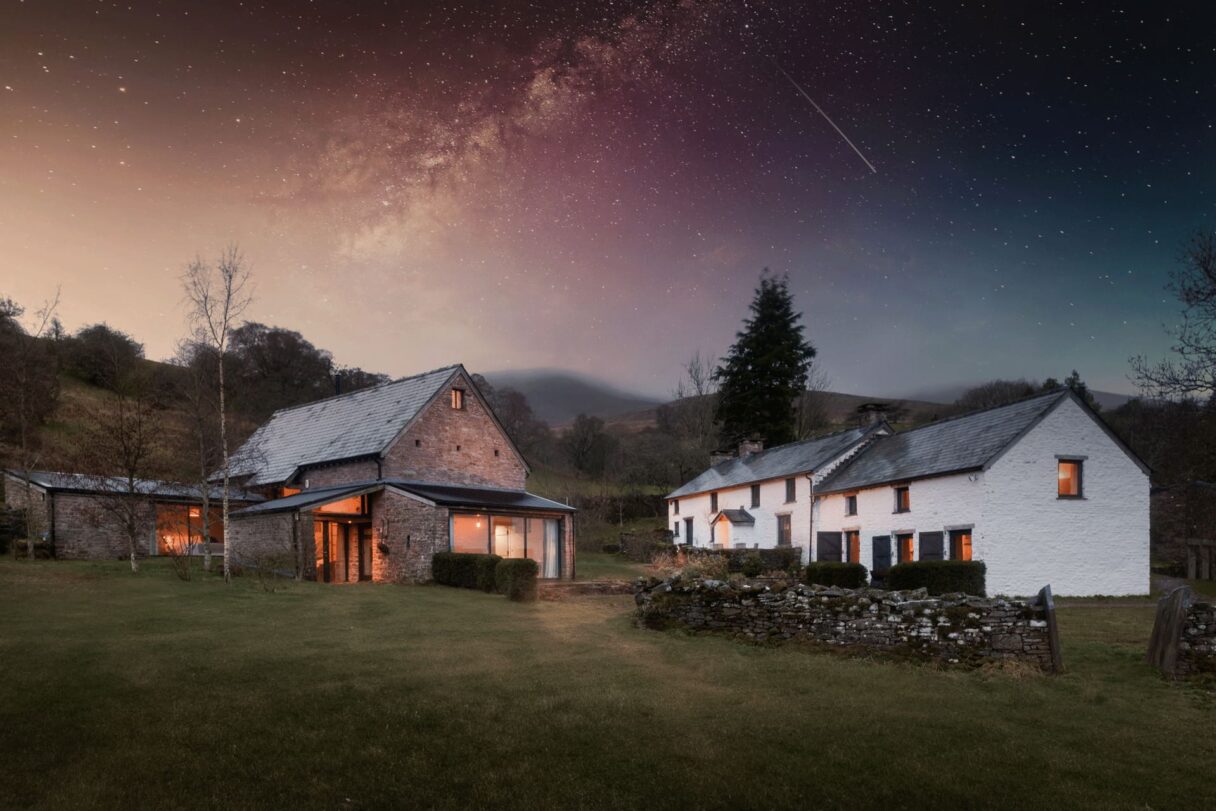
If you’re tightening the purse strings, or find yourself time-poor, you can experience astrotourism without leaving the UK. Celestia in Brecon Beacons, Wales, is one of the best places in the UK to soak up the sky, which you do from the retreat’s ‘stargazing bowl’. At Huts in the Hills in the International Dark Sky Park in Northumberland, you sleep in a shepherd's hut with a skylight overhead. You can even glimpse the cosmos from the home counties at The Lookout Bubble in Kent, where transparent glamping bubbles allow you to view the stars at Port Lympne.
Celestia, from £2,395 for four nights; Starry Skies, price on request; The Lookout Bubble, from £459 per night.
Namibia
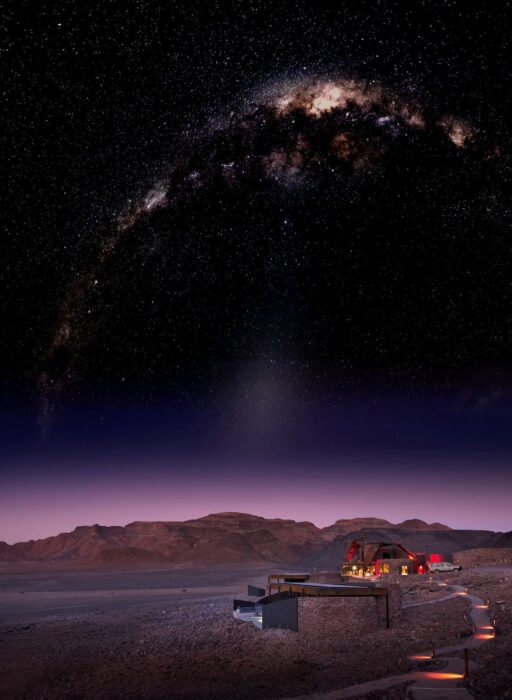
Sossusvlei Desert Lodge, Namibia

For stargazers travelling to Africa, there is only one place to go: Namibia. Home to miles of open desert, the cosmos rarely looks as good as it does from here. The &Beyond Sossusvlei Desert Lodge is based in the NamibRand Dark Skies Reserve, which is 140km from the nearest town and has resident astronomers, its own observatory with a high-spec telescope, and suites with skylights over beds. Other lodges in the reserve, which regulates the use of vehicle headlights to protect its status, include Kwessie Dunes Lodge and Wolwedans, both of which offer stargazing safaris.
From approx. £770 per person, per night.
Saudi Arabia
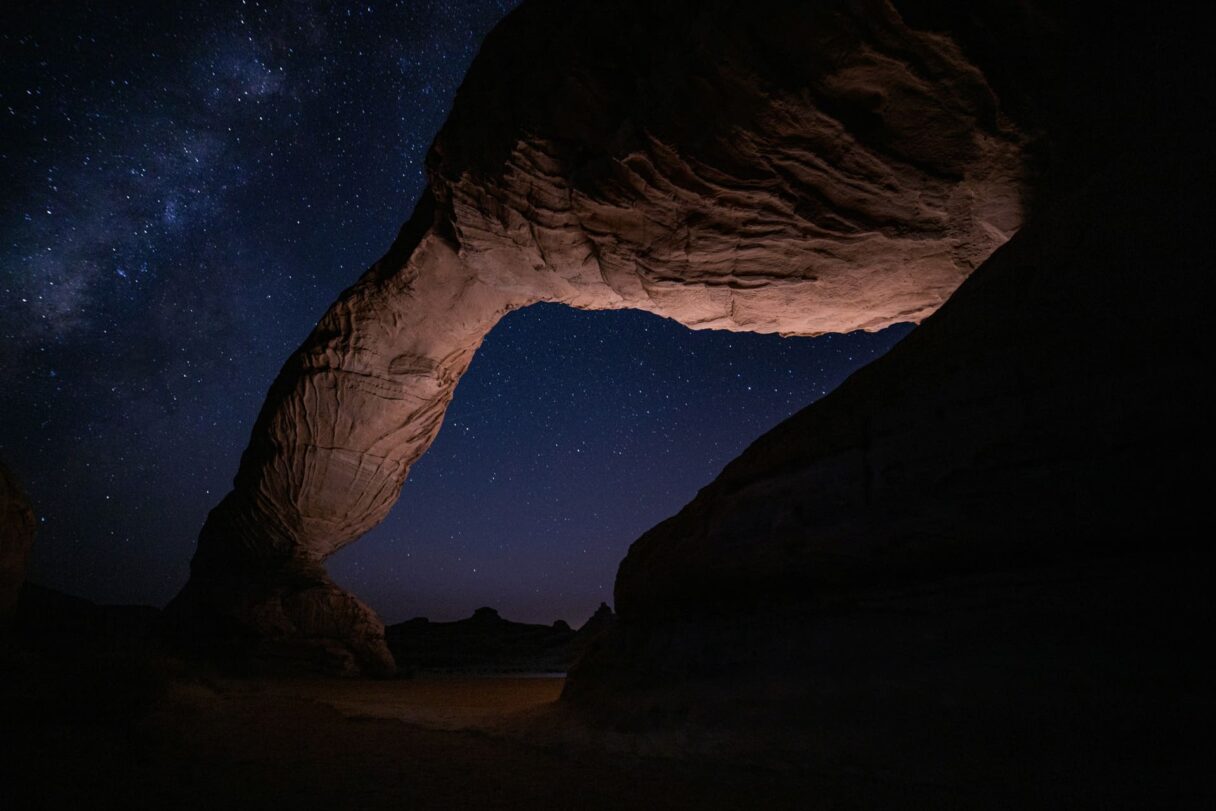
The Red Sea, a planned megaproject in Saudi Arabia formulated as part of the Vision 2030 program, is slated to be one of the top places the wealthiest 0.1 per cent will visit in 2024. It’s not just UHNWs who are drawn here, however, but also aspiring astronomers, as the remote enclave has plans to become the world’s largest Dark Skies Reserve. At Six Senses Southern Dunes there are strict guidelines to eliminate light pollution, and desert stargazing excursions, astrophotography sessions, and campfire storytelling are all part of the proposition.
From £692 per night.
South America
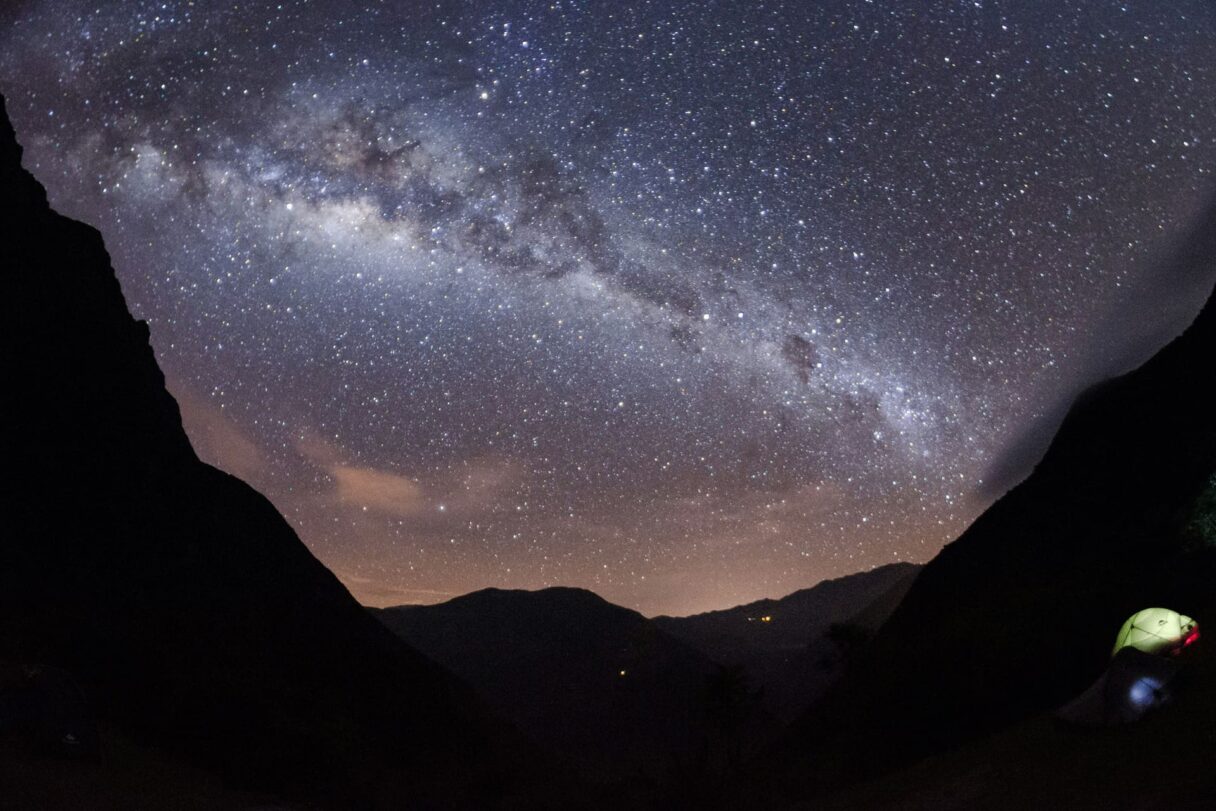
There are numerous hotspots from which to see starry skies in South America, from the peaks of Patagonia to quiet provinces in Argentina. Let’s start in Ollantaytambo in Peru, where you’ll find Skydome Lodge – a window-lined hotel that affords prime views of the night sky, and where guides take you out for celestial observation. The Elqui Valley in Chile, meanwhile, boasts a high elevation and low population density, as well as being nearly cloud-free – as a result, over half of Earth’s astronomy infrastructure is here. Finally, in Argentina’s Salto Encantado Provincial Park, visitors connect with cosmology and culture of the indigenous Guaraní communities.
From £142 per night.


